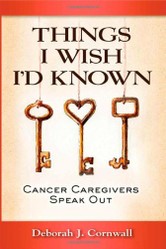Another important matter is transgender students or staff. In Juchitán, there are indigenous men who dress like women (Mirande, page 509). Muxes is another term for this. In some respects, these men have considerable respect from the community. Some describe Mexico as hegemonic as there is much patriarchy and intolerance of homosexuality. In fact, many describe LGBT as a “third sex.” The writer, Mirande, publishes the article to lessen the matters of homophobia, youth bullies, and gay bashing (Mirande, page 510).

The Meaning of Muxes
Today—as well as before--there has been much concern about hate crimes, bullying, and harassment in kindergarten through twelve schools.
Spanish Conquistadores
Spanish conquistadores have objected to sodomy (Mirande, 511). It is true today that the American Psychiatric Association tells us that homosexuality has been on the planet since humans occupied it. Much historical literature describes hundreds of years of gay or bisexual behavior. Moreover, there are many verses from the Bible about the presence of same-sex relationships. Other terms that people have used are perversion, femininity, abominable, and corrupt. Some are obscene, lost, and sick. There has been a death penalty for participation in these types of same-sex activities. Also is an interesting reference to Frida Kahlo, who suffered from turbulent marriages, physical accidents, and who was a successful Mexican painter (Mirande, page 518).
The article mentions a third sex in which those who are bisexual consider sex and gender as separate. Some homosexuals demonstrate much intelligence and artistic capabilities (Mirande, page 523). In Mexico, some families are supportive rather than condemnatory about same-sex relationships. Juchitán, according to the writer, is not a matriarchal society in some ways. Women have power there as well as autonomy. Also, girls have training to become assertive. Ladies have some control as economic heads of the household (Mirande, page 537).
Writing in the Present
The next document is Writing in the Present (2), and it is separate from Ander’s Awakening on pages 1-17 (3). It alludes to Native lesbian, bisexual, queer, transgender, and two-spirit feminists. Sovereign Erotics is a tool to help people who are in a situation wherein society does not accept them. There is Living the Spirit: A Gay American Indian Anthology. It is a 1988 publication. Two-spirited individuals have created art as well as “living and loving” since humans inhabited the planet. Sovereign Erotics will contribute to work in the world which will improve the situation for those who are same-sex or bisexual. This will include queer Natives. One must understand that gender and sexuality have connections with tribal life. The author indicates a desire to decolonize the future and help Natives (Justice page 2). This is where the authors provide help with race and gender.
Justice asserts that Sovereign Erotics has a role of indigenous liberation. Every orgasm, he says, can lead to decolonization (Justice, page 3). Natives generate stories via creative non-fiction, poetry, or fiction. The term “two-spirit” has circulated the community for two decades. This has to do with contemporary Natives. It also stems from lesbian and gay conferences. In any event, some queer Native individuals do not affiliate as two-spirit. There is a long list such as transsexual, transgendered, bisexual, and gay. Other terms include lesbian, gender queer, and intersexed (Justice, page 5; Crenshaw, 1993).
There are several other interesting documents which support the ideas in this paper. For example, there is A Journal of Lesbian and Gay Studies (Justice, page 6). It is also interesting that the writers Qwo-Li and Justice have known each other for two decades and attended undergraduate school together. There are really two separate documents Queer Indigenous Studies and Sovereign Erotics. Also, the text describes Long/Walks, and it refers to dignity issues, loneliness, shame, and alienation (Justice, page 9). Justice also writes about Dolly Parton’s work. Another work is “Tinseled Backs: An Historical Study in Indian Homosexuality.” A story of a young lady who attended a private school during the 1970s is Gay Sunshine: A Journal of Gay Liberation in 1975.
Daniel Heath Justice’s Ander’s Awakening is a well-known story about a young man who lived with relatives. His family pressurized him about homosexuality, and there were disputes about his sexual orientation. Specifically, they accused him of shame on the family (Heath, page 153). The complaints were that he must stop these behaviors. These include “girl hair, dresses, whore paint…” Guram threatened to beat the child should it continue. Pontepael intervened and defended Ander’s lifestyle; however, the story ended when Pontepael left the relationship. It had to do with Denarra’s entry into the scene (Heath, page 177). It is possible that the situation has improved over the years as family and others have learned that sexuality is not always what people believe it to be. The many varieties of sexual orientation have become evident to people across the globe.
Contributions from Authors about Gender and Race
Mirande has a scholarly publication in a law journal. He has a doctorate as well as a law degree and is a Professor of Sociology. His knowledge of Mexican Spanish places him at an advantage as he understands much about the culture of that geographic region. Here is where Mirande can assist with race relations—his own knowledge of the southwestern region of the country. In general, one must not interpret this term as merely man or woman. The best approach is to assume that gender refers to a range of identities or social/cultural aspects. In other words, men and women no longer have two choices for it (Oxford, 2020). There are themes of these issues in Justice’s work about gender and race such as indigenous matters. Clearly, this story reveals what families have done for so many centuries, and there is better progress than it was (1, 2, 3).
Conclusion
As one of the most interesting stories in the course, Ander’s Awakening will continue to show the world that past approaches to sexuality will, with time, become an item of the past.
References
- Mirande, A. (2012). The muxes of Juchitán: A preliminary look at transgender and acceptance. California Western International Law Journal, 42, 509-540.
- Writing in the present. Sovereign Erotics: A collection of two-spirit literature. Editors, Qwo-Li Driskill, Daniel Heath Justice, Deborah Miranda, and Lisa Tatonetti. Tucson: University of Arizona Press 2011:150-177.
- Justice, D. (2011). Ander’s Awakening. Pages 150-177.
- Davis, A. (1983). Women, Race, and Class. New York: Vintage Books.
- Crenshaw, K. (1993). Mapping the margins: Intersectionality, identity politics, and violence against women of color. Stanford Law Review, 43, 1241-1299.
- Copyright 2020. Michael Koger, Sr., M.D. All rights reserved.
You might also like
How to React to and Help a Loved One with CancerDealing with cancer? Learn how to react, treat and care for a loved one when ...
Do You Have Your Own Cure For Cancer?Is it possible you might be completely unaware of the cancer cure, a natural ...



 The Reality of Aspirinon 05/24/2021
The Reality of Aspirinon 05/24/2021
 An Old Microbeon 03/31/2021
An Old Microbeon 03/31/2021
 Coronavirus and Mental Illnesson 02/14/2021
Coronavirus and Mental Illnesson 02/14/2021
 Acute Ischemic Strokeon 12/25/2020
Acute Ischemic Strokeon 12/25/2020


Comments